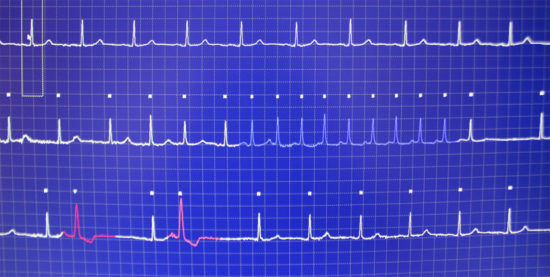Dizziness
We can help.
At Cardiology Specialists, we can help work out whether your dizziness or light headiness is due to the heart.
Causes of dizziness:
Dizziness can be due to problems with the wiring (conduction system) of the heart where the heart beat can suddenly go slow or even pause. Other causes of dizziness related to heart include high or low blood pressure, heart valve narrowings, or atrial fibrillation
Symptoms
Feeling tired, breathless or fainting. Atheletes may have a slow resting heart rate due to training.
Investigations
Resting Electrocardiogram (ECG)
A Resting ECG at Cardiology Specialists is an electrical tracing of your heart. Electrodes are placed on the skin of your arms, legs and across chest to measure electrical activity of the heart. It gives information about heart rate, evidence of old heart attacks, thickening of heart muscle, or heartbeat problems such as extra (ectopic) beats or atrial fibrillation.
24 hour Ambulatory Holter Monitor (Heart rate monitor)
 A 24 hour Holter Monitor at Cardiology Specialists is where a continuous heart rate tracing is obtained to measure relationship between symptoms and heartbeat. Electrodes are applied to your chest under your clothes by trained staff to measure continuous measurement of heart rate and rhythm over 24 hours. The electrodes are attached to a small portable recorder. You can mark the recording at any time you have heart flutters or other symptoms. It is important to keep a diary so your symptoms can be compared to your heart rhythm at same time. The 24 hour Holter Monitor at Cardiology Specialists is useful to detect different types of palpitations including: extra heart beats (ectopic beats), fast regular heart beats (supraventricular tachycardia (SVT)), irregular heart rhythm (atrial fibrillation), and ventricular tachycardia (VT). Patients with intermittent atrial fibrillation are at similar risk for stroke compared to patients in atrial fibrillation all the time.
A 24 hour Holter Monitor at Cardiology Specialists is where a continuous heart rate tracing is obtained to measure relationship between symptoms and heartbeat. Electrodes are applied to your chest under your clothes by trained staff to measure continuous measurement of heart rate and rhythm over 24 hours. The electrodes are attached to a small portable recorder. You can mark the recording at any time you have heart flutters or other symptoms. It is important to keep a diary so your symptoms can be compared to your heart rhythm at same time. The 24 hour Holter Monitor at Cardiology Specialists is useful to detect different types of palpitations including: extra heart beats (ectopic beats), fast regular heart beats (supraventricular tachycardia (SVT)), irregular heart rhythm (atrial fibrillation), and ventricular tachycardia (VT). Patients with intermittent atrial fibrillation are at similar risk for stroke compared to patients in atrial fibrillation all the time.
Echocardiography
Echo at Cardiology Specialists uses ultrasound to measure function of heart chambers and heart valves. Echo is also called Cardiac Ultrasound, which uses high frequency sound waves and is similar to a gall bladder or pregnancy ultrasound but is instead focused on the heart. Professor Hamid Ikram pioneered the introduction of Echo to Canterbury. At Cardiology Specialists, Echo is performed by a specially trained technician who moves a plastic transducer on the skin of the chest wall to obtain pictures of the heart chambers and valves. Echo (cardiac ultrasound) is useful for diagnosing weakened heart muscle, old heart attacks, heart valve narrowing or leaking, thickening of heart muscle, holes between heart chambers, or fluid in the sack around the heart.
24 Hour Ambulatory Blood Pressure Monitor (BP monitor):
The 24 hour Blood Pressure Monitor at Cardiology Specialists uses a blood pressure cuff connected to a portable recorder to measure blood pressure at different times over 24 hours. 24 hour BP Monitor can assess “white coat” hypertension, and whether blood pressure decreases normally in the evening. Blood Pressure recordings can be compared to different patient activities using an iPhone app, or diary. Recent studies have shown that patients with white coat hypertension have a higher incidence of vascular events including strokes and heart attacks. Patients with high blood pressure (hypertension) can become “ reverse dippers” where blood pressure is higher in late afternoon/evening compared to morning.
